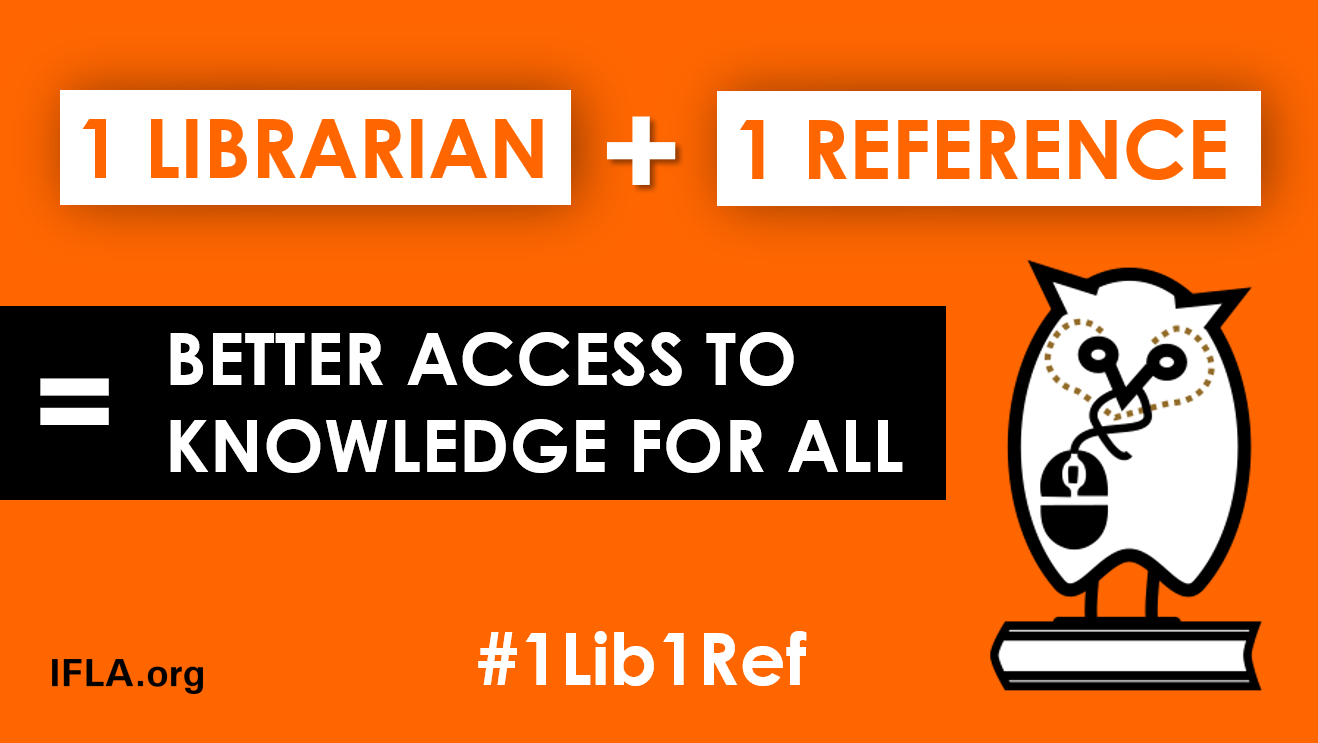
#1Lib1Ref has just begun. Around the world, for the next three weeks, librarians will be doing the thing they do best – helping people regardless of background to access quality information – by adding references and improving articles on Wikipedia.
Through this, the power of the library field, with its 2.3 million institutions, comes together with the reach and recognition of one of the world’s biggest websites.
The result is a great opportunity to boost the quality of a resource which is increasingly central for everything from medical research to gentle curiosity. You can find out about how to get involved on the dedicated website.
It’s also a good time to look back at the two Opportunities Papers created by IFLA and the Wikimedia Foundation (the organisation that runs Wikipedia, as well as a number of other projects) in 2016, focusing respectively on Wikipedia and Public Libraries, and Wikipedia and Academic and Research Libraries.
These highlighted a number of ways in which libraries gain from working with Wikipedia, both in direct practical terms, and at the level of promoting equitable access to information globally.
Here are just ten of them:
1) It improves democratic access to reliable information: Wikipedia represents a major source of free knowledge, open to everyone (at least where it has not been blocked). While there may be debates about its reliability, the same goes for more traditional sources. Crucially, it complements the work of libraries by allowing people to find information at any time of day, as long as they have an internet connection (and sometimes even when they don’t!).
2) It’s a supplementary information resource (including within catalogues): Wikipedia has, in some countries, even been added to library catalogues, meaning that when a user is searching for a specific term or question, the Wikipedia results also come up. Wikipedia is also increasingly recognised as a starting point for research. More and more, other products are using Wikipedia entries – for example Amazon in its Kindle, or Facebook in combatting fake news.
3) It’s a means of teaching digital literacy: editing Wikipedia can be a key part of the development of digital literacy skills among library users. It can allow people to gain confidence in using the internet by sharing their own knowledge – potentially for the first time – and in doing so help others.
4) As a way of confronting and advancing discussion: editing Wikipedia can also be an education in information literacy. Following the edits made to a page give an idea of what lies behind any particular stated fact, as well as broader insights into how knowledge and perceptions are created. Operating within the rules of the community also offers an experience in how to work cooperatively.
5) It’s a way of helping people become more engaged in a subject: for librarians with users who are particularly interested in a specific subject, or who bring a strong expertise, Wikipedia and specific Wikimedia projects can offer a great way of exploring a personal passion further. This is fulfilling for the individual, and increases the volume of information available internationally.
6) It’s a tool for engaging with local communities: what works for individuals can also work for communities. Working together, the members of a community can start to present their area, their subject of interest, or their history
7) It’s a way of decolonising the internet: libraries have become increasingly aware of the impact that collections and cataloguing practices have had on the representation of minority groups. However, the internet is also dominated by content from particular sources, with many others not finding material in their language, or about subjects they care about online. Libraries can help to address these gaps by supporting editathons and other efforts to build locally relevant content on Wikipedia.
8) It’s a place to share public domain materials: Wikipedia increasingly relies on underlying databases, such as the Wikimedia Commons (documents and images that are either openly licenced or in the public domain), and Wikidata. Uploading library materials – where this is permissible – strengthens the resource base available, and raises awareness of library materials.
9) Because it’s a way of advancing Linked Open Data: with its work on Wikidata, the Wikimedia Foundation is looking extensively at how to connect data concerning different collections and materials. Given the global reach of Wikipedia, this is a potentially very interesting
10) It’s a place to talk about your library and its collections: Many libraries have their own Wikipedia pages, or make sure that their details (opening hours, special collections) are available on their town or city’s website. Given the high search ranking often given to Wikipedia results, it’s a great way of sharing this information. Of course, don’t forget to avoid conflicts of interest when editing!